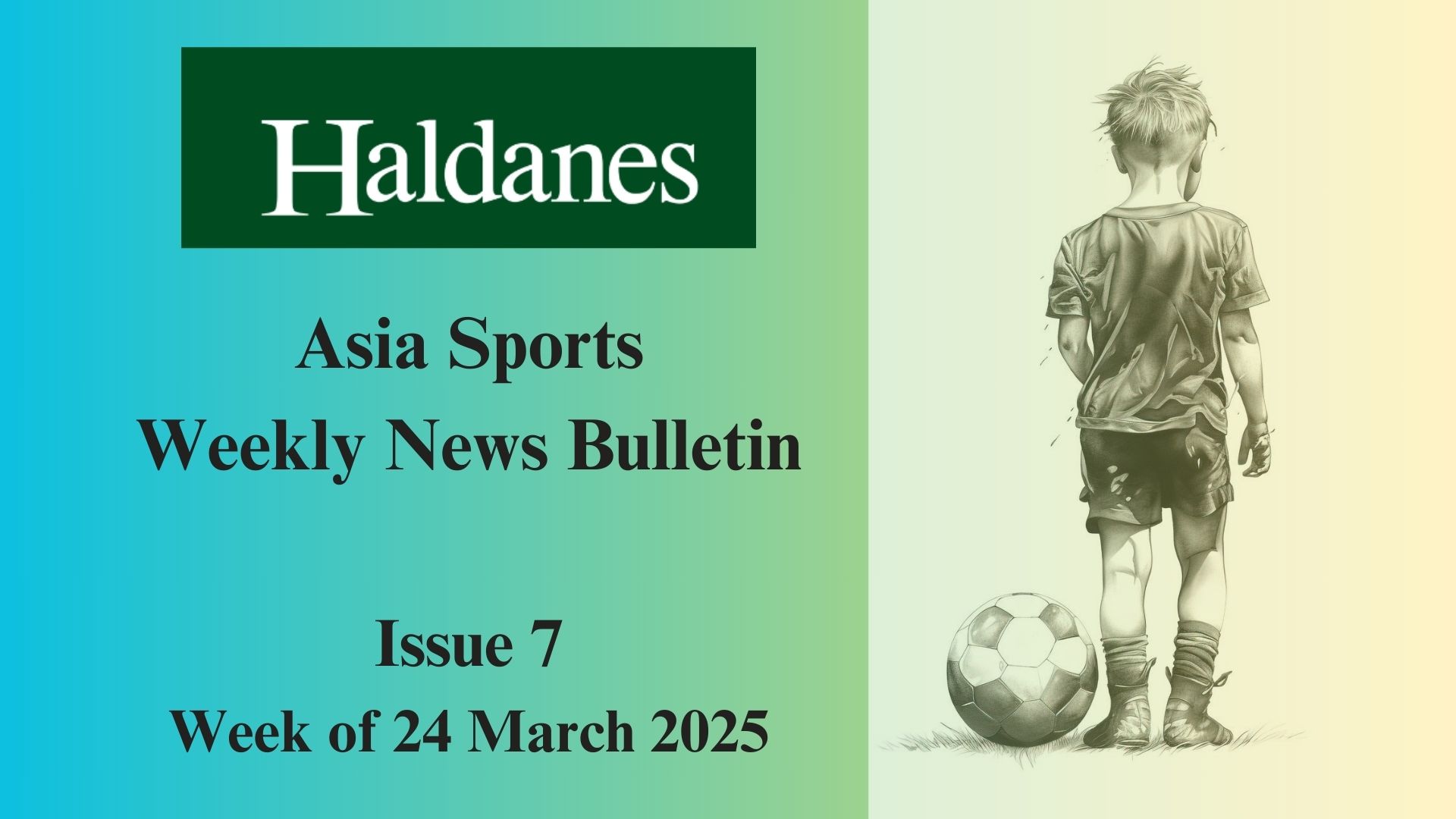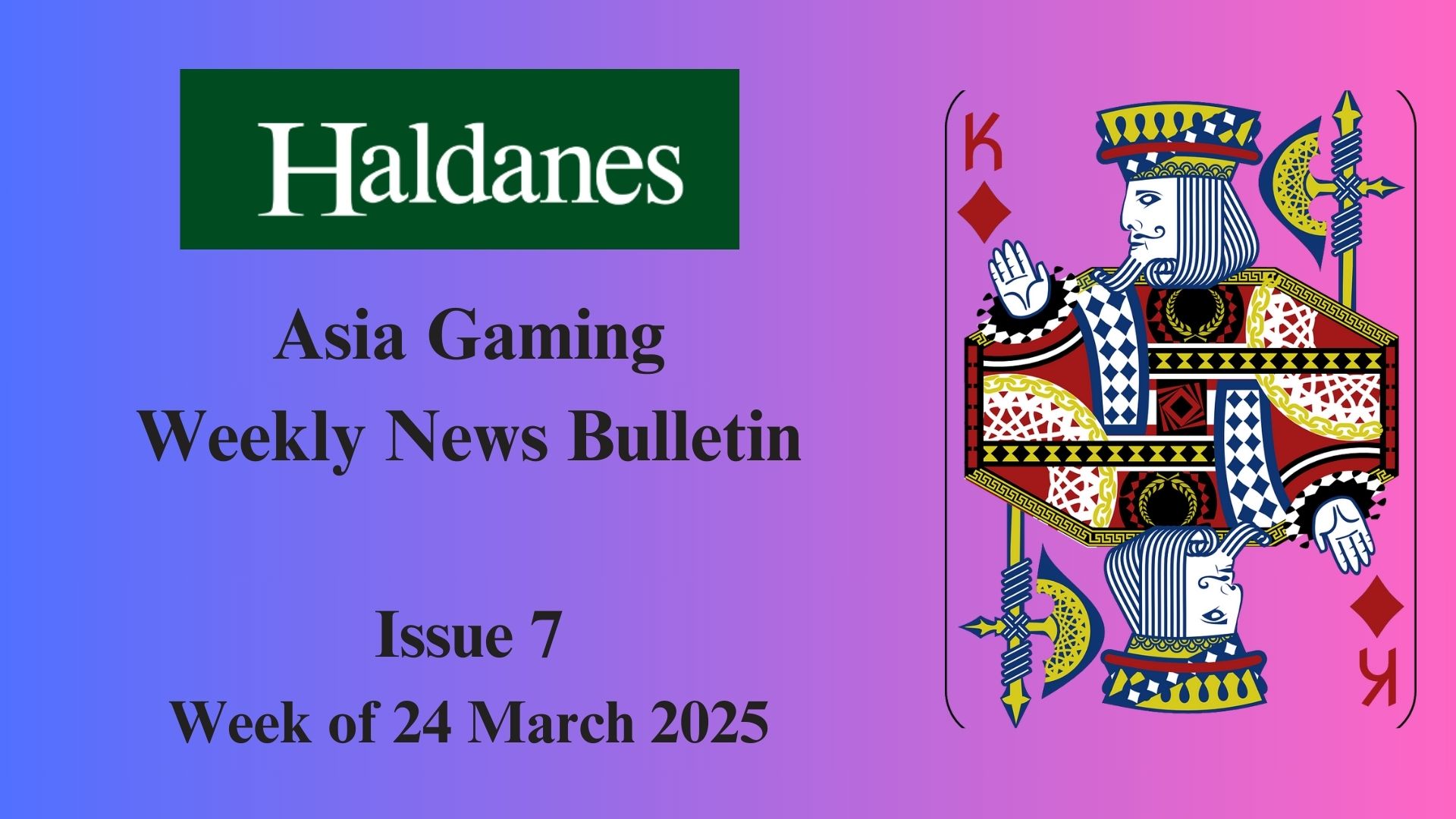Asia Gaming Weekly News Bulletin – ISSUE 2 Week of 17 February 2025
(1) Indonesia to introduce stricter regulations on online gambling soon
Indonesia President Prabowo Subianto has announced that the government will introduce stricter regulations to tackle online gambling.
(2) Bill to legalise casinos in Thailand could be debated in Parliament before year-end
The Finance Ministry of Thailand plans to debate legislation for legalising casino resorts by year-end, with proposed strict entry requirements for Thai nationals and significant public opposition to the plan.
(3) Japan struggles to cope with online gambling addiction
Japan is struggling with increasing online gambling addiction, with many unaware that such activities are illegal.
(4) Philippines’ PAOCC Aims to Eradicate Illegal POGOs by End of 2025
The PAOCC aims to eliminate illegal POGOs by 2025, targeting underground operations despite many relocating to Cambodia, which has more relaxed regulations.
(1) Indonesia to introduce stricter regulations on online gambling soon
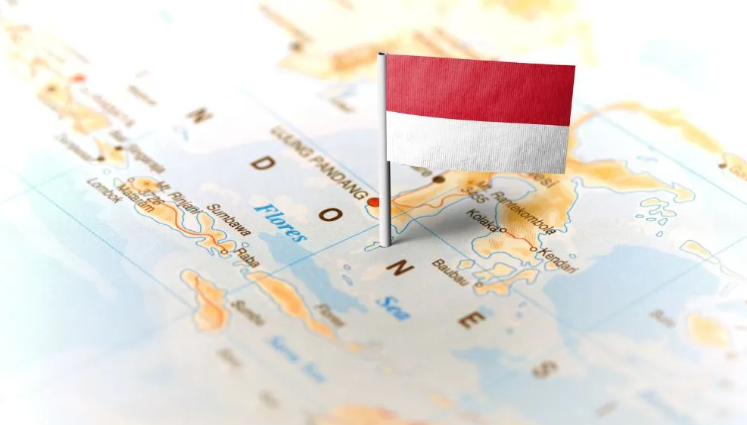
(Photo Credit: Sigma)
Head of the Presidential Communications Office, Hasan Nasbi, emphasised that President Prabowo Subianto is focused on both blocking access to online gambling sites and tracing payment gateways linked to gambling activities. He stressed the importance of international cooperation, stating that Indonesia cannot address this issue alone.
Communication and Digital Affairs Minister Meutya Hafid confirmed that the government will soon issue new, stricter regulations on online gambling, including Government Regulations (PP) for comprehensive oversight. While the government has blocked nearly one million gambling sites, Hafid highlighted that simply blocking is not enough, necessitating further action, including collaboration with law enforcement.
The ministry reported a significant drop in online gambling transactions, from Rp21 trillion (US$1.29 billion) in the first quarter to Rp4 trillion (US$246.2 million) in the third quarter of 2024. Additionally, an artificial intelligence monitoring system has been implemented to detect and block gambling-related websites and applications. As of early 2025, Indonesia’s Komdigi Ministry has blocked 43,063 digital items related to online gambling content, reflecting ongoing efforts to combat this issue.
News Source: https://sigma.world/news/indonesia-to-introduce-stricter-regulations-tackle-online-gambling-soon/#:~:text=Indonesia%20President%20Prabowo%20Subianto%20has,efforts%20against%20illegal%20gambling%20activities.
(2) Bill to legalise casinos in Thailand could be debated in Parliament before year-end
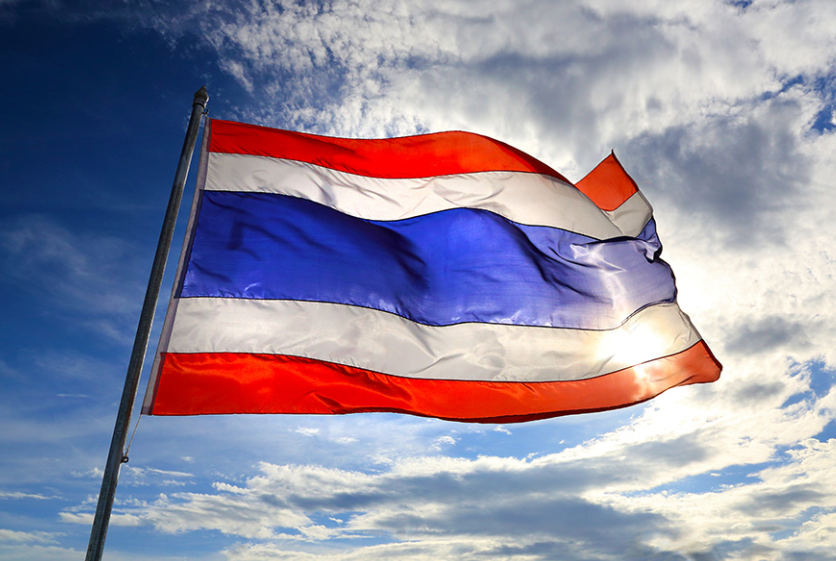
(Photo Credit: Focus Gaming News)
The Finance Ministry of Thailand expects that legislation to legalise casino resorts will be debated in Parliament by the end of this year. The draft bill, which received approval on 13 January 2025, is currently under review by the Council of State and is set to be completed by 6 March 2025. Discussions within the Council focus on regulations, including a proposed limit of 10% on the area occupied by casinos within the complexes.
The legislation aims to grant 30-year casino licenses, with an option for a 10-year renewal, for operations in designated areas by companies with a minimum paid-up capital of THB10 billion (approximately US$283 million). Analysts from Citigroup project that casinos in Thailand could generate up to US$1.91 billion annually in gross gaming revenue, potentially surpassing that of Singapore’s casinos and ranking Thailand just behind Macau and Las Vegas.
However, the proposed plan has faced significant opposition. Thai nationals wishing to gamble would need to have THB50 million (US$1.5 million) in fixed deposits and would be subject to a THB5,000 (US$144) entry fee. Critics, including former Prime Minister Abhisit Vejjajiva, argue that the plan could lead to increased household debt and crime. Advocacy groups, including the Stop Gambling Foundation, are gathering signatures to demand a referendum, reflecting widespread public opposition to the government’s plans.
News Source: https://focusgn.com/asia-pacific/bill-to-legalise-casinos-in-thailand-could-be-debated-in-parliament-before-year-end
(3) Japan struggles to cope with online gambling addiction
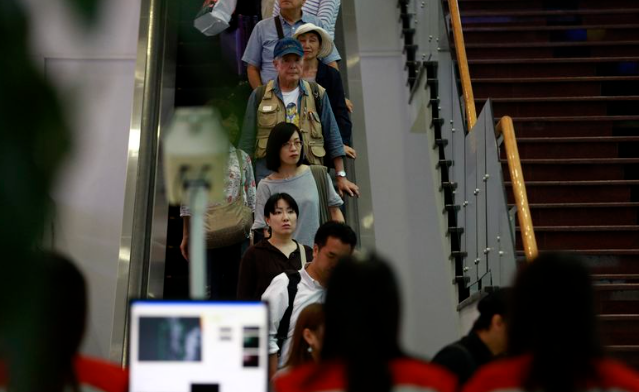
(Photo Credit: Reuters)
Japan is grappling with a rising issue of online gambling addiction, highlighted by police taking legal action against 279 individuals in 2024 for using illegal online casinos. Many of those targeted were unaware that internet gambling is prohibited, even when the casinos operate legally overseas, marking a record high in reported cases.
Authorities are tracking online gamblers by examining bank accounts of businesses handling bets, but estimates suggest that around three million people are engaged in online gambling. A 2017 survey indicated that 3.6% of Japanese adults, or about 3.2 million individuals, have faced gambling problems in their lifetimes.
Among those with gambling addictions, about 80% say that Pachinko, a popular arcade game, is the main source of their addiction. This complicates government efforts to tackle addiction since under Japanese gambling law, Pachinko is not a form of gambling, and is a major source of tax revenue in the country.
News Source:https://daijiworld.com/news/newsDisplay?newsID=1272045
(4) Philippines’ PAOCC Aims to Eradicate Illegal POGOs by End of 2025

(Photo Credit: The Blue Diamond Gallery)
The Presidential Anti-Organised Crime Commission (PAOCC) of the Philippines aims to eliminate illegal Philippine Offshore Gaming Operators (POGOs) by the end of 2025. This initiative seeks to target small-scale POGOs and reduce unregulated gambling, reaffirming the government’s commitment to tackling these illegal activities.
The action taken by President Ferdinand R. Marcos Jr against POGOs have pushed these establishments into underground entitles now running from residential areas such as apartments, condos, hotels, and resorts. PAOCC Executive Director Gilbert Cruz noted that despite the risks, many continue due to substantial earnings, emphasising that the Philippines cannot be free of POGOs until all operators are completely shut down.
Stricter laws have pushed many POGO operators to relocate to Cambodia, where regulations are more lenient. The PAOCC is committed to intensifying efforts against these illegal gambling activities, aiming for a comprehensive approach to restore legality and order in the sector.
News Source: https://www.casino.com/news/world/philippines-paocc-aims-to-eradicate-illegal-pogos-by-end-of-2025/
